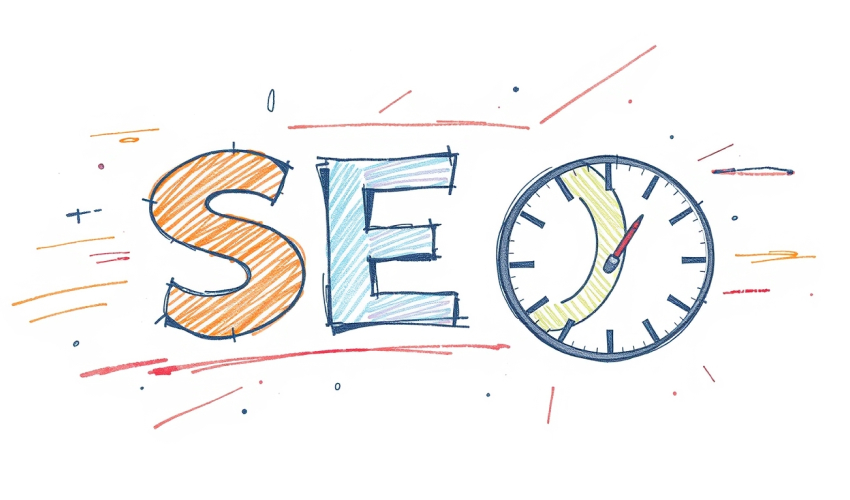SEO and Site Speed: Why Load Optimization is Important for Search Engine Optimization

Imagine that you go to the site, and each page opens for a long 5-10 seconds. Most likely, after a few transitions you will get tired of waiting, and you will refuse to use the resource. It is noteworthy that the speed of the site is important not only for users, but also for its successful entry into the TOP issue. The price of slow loading is high, because when ranking search engines such a resource put on lower positions, which leads to the loss of customers.
In detail, how you can optimize the site to improve loading, tell us in this article.
How the speed of loading the site depends on the success of its promotion
Recent updates in search engine algorithms are aimed at promoting sites that provide a fast, stable and quality user experience. Google, Bing and other search engines are expanding their capabilities by evaluating user behavior on a portal and processing complex queries based on AI.
For example, in recent updates, Google has added new parameters and refined the weight of metrics such as:
- LCP - measures the time it takes to load the largest component of the visible part of the page;
- CLS - summarizes all unexpected movements of elements on a page while it is open to show how visually stable it remains for the user.
This allows search engines to more accurately assess the speed of the site and the stability of its loading. Fast and visually stable pages get an additional ranking advantage.
Methods of optimizing loading
The work of the resource can be accelerated by different methods, but first it is important to understand what causes slow loading. In this case, services such as:
- Google PageSpeed Insights - not only evaluates the loading speed of the site, but also gives useful advice on its optimization;
- GTmetrix - measures performance by displaying detailed metrics, including the speed of page opening, and gives tips for optimizing site speed;
- WebPageTest - allows you to test your site from different geographical locations and browsers, showing detailed loading analytics and identifying problem areas.
If you are in the process of development, you should evaluate the loading speed of your site comprehensively, paying special attention to the points described below.

Reduce the number of HTTP requests
These are messages that a browser sends to a server to retrieve the necessary components (images, text, styles, scripts) to load a web page. Each request takes time to be processed by the server. Therefore, the more of them there are, the longer the user waits for the site to load.
If you reduce the number of HTTP requests, the portal will open faster. You can optimize page loading by combining CSS and JavaScript files, enabling asynchronous script loading, and setting up caching.
Optimize code
Clean and concise code is the basis for fast operation of the resource, so optimizing the loading of the site provides for the elimination of:
- unnecessary syntax;
- unnecessary spaces;
- explanatory comments;
- repeated indentation.
By optimizing the code, you will reduce the size of HTML, CSS and JavaScript files, which will speed up the loading of the resource.
Reduce the impact of third-party code
Websites are often integrated with third-party services - links to social networks, embedded players, payment systems, programs that track statistics. Each of these elements not only links the resource to another portal, but also makes it dependent to a greater or lesser extent. And naturally, they slow down the opening of pages. Therefore, to speed up loading and effective promotion of the site, reduce the number of third-party scripts and services.
Do not forget about caching
Save copies of portal files (photos, styles, scripts) in the browser or on the CDN server. And then, when the client visits the page again, the main data will be loaded from the cache, not from an external computer. Optimizing the loading of the site speeds up its work, especially with slow internet.
Optimize images
Graphics are very heavy and slow down the opening of pages a lot, so it is important to take care of optimizing images for good site loading speed, for example:
- reduce the weight of the file by writing in a lighter format (e.g. JPEG for photos);
- compress images so that quality is not affected.
Also implement delayed loading of images (Lazy Loading). This is a method of optimizing the loading speed of the site, in which they are opened only when they become visible in the browser window, rather than immediately when you open the page.
Another option is to create a thumbnail, after clicking on which the desired content is in front of the user. You can also make files load in the background after the page is opened. Implementing Lazy Loading has a good effect on increasing the loading speed of the site and will save traffic, which is important when you have limited internet.
Don't forget to compress text files
Pages that weigh little will load faster. Enable gzip compression to reduce their size. The content will then be archived on the server before being sent and decompressed in the browser. This makes text files on the page 50-70% lighter and the portal loads faster.
Reduce the number of redirects
It is important to reduce the number of redirects (redirects) on your site to ensure it runs quickly and efficiently. Each redirect creates an additional HTTP request, which slows down the resource. Therefore, their excess negatively affects the user experience and the position of the resource in the search engine.
SEO-promotion of websites from Megasite
Do you need an effective optimized resource that loads quickly, provides the user with a user-friendly interface, high-quality content and thoughtful navigation? Contact the IT company Megasite, which is engaged in the creation of websites and their promotion. We have been providing services on the Ukrainian market for more than 10 years, and during this time we have created many interesting projects that have brought profit to our clients. Fill out the form on the website, - our manager will call you back and answer all your questions regarding price, development terms, etc.
Your project
Call/write:


